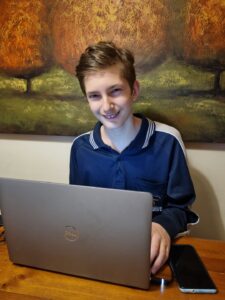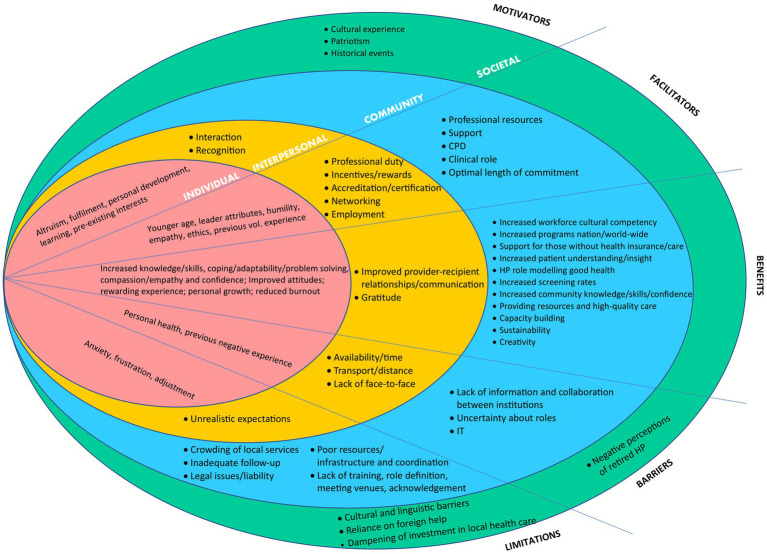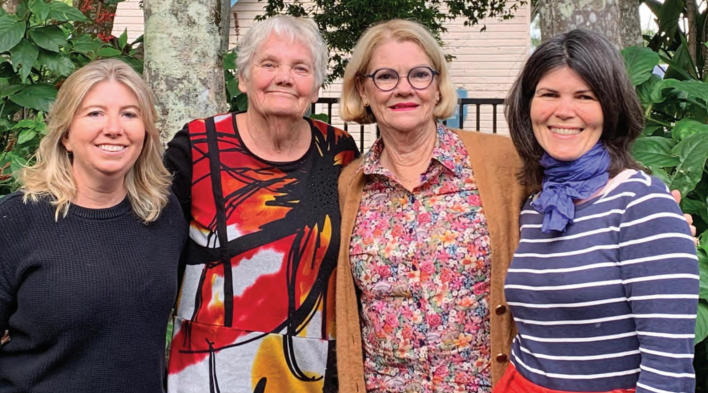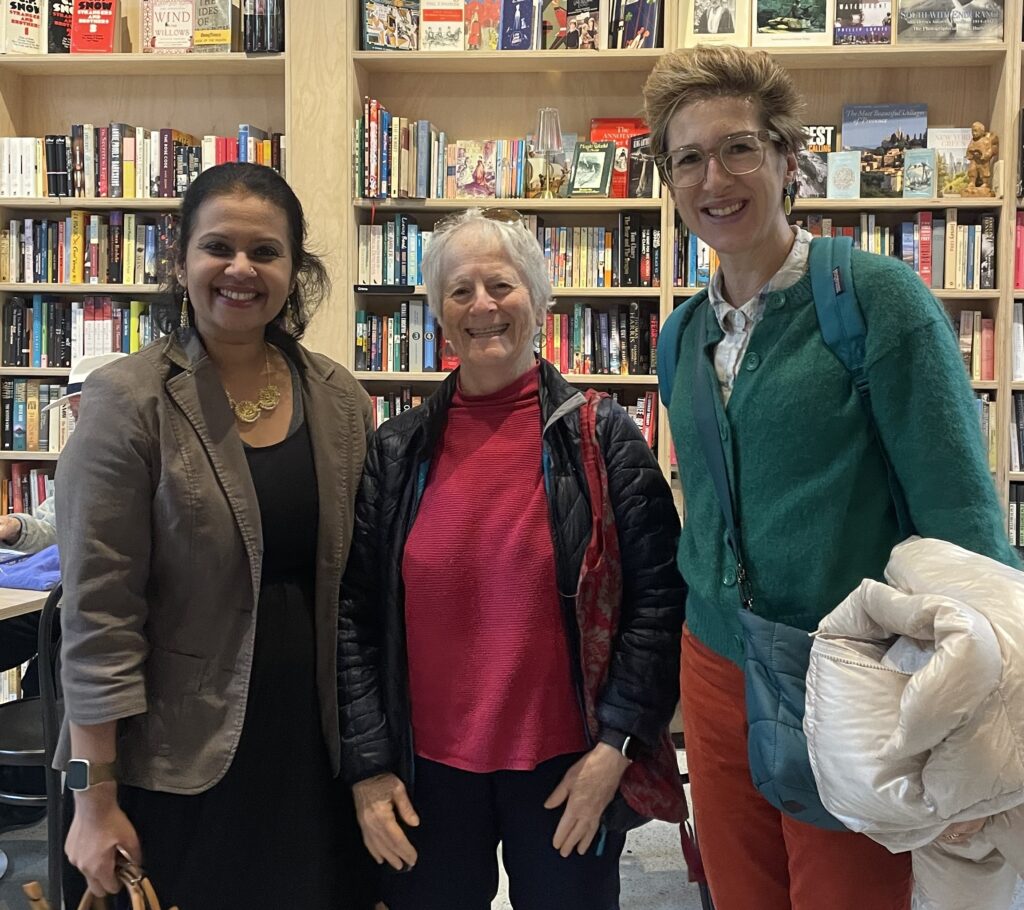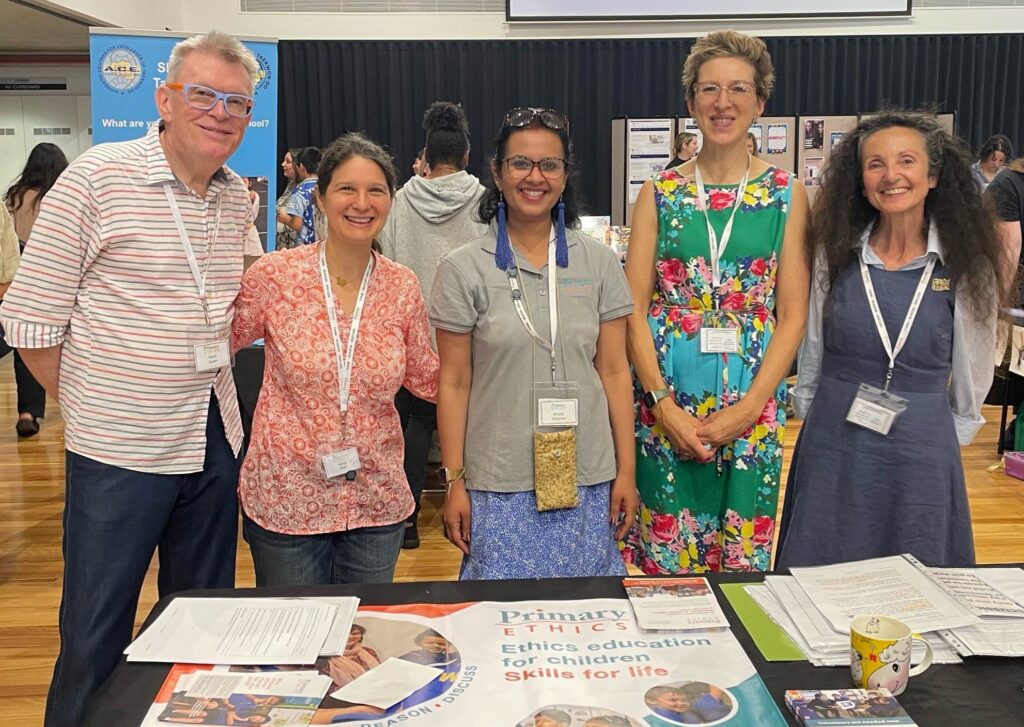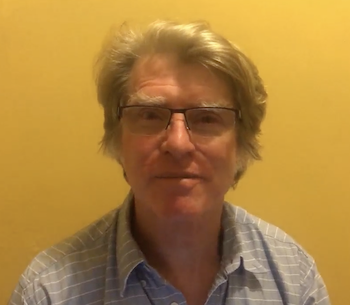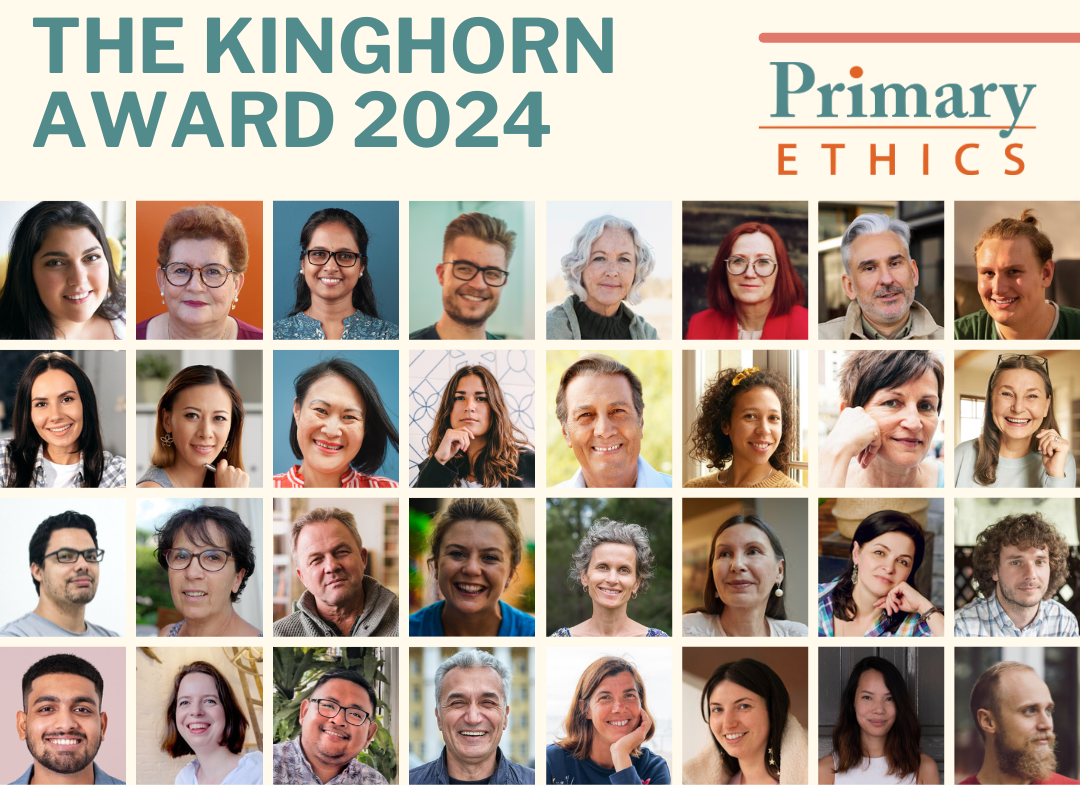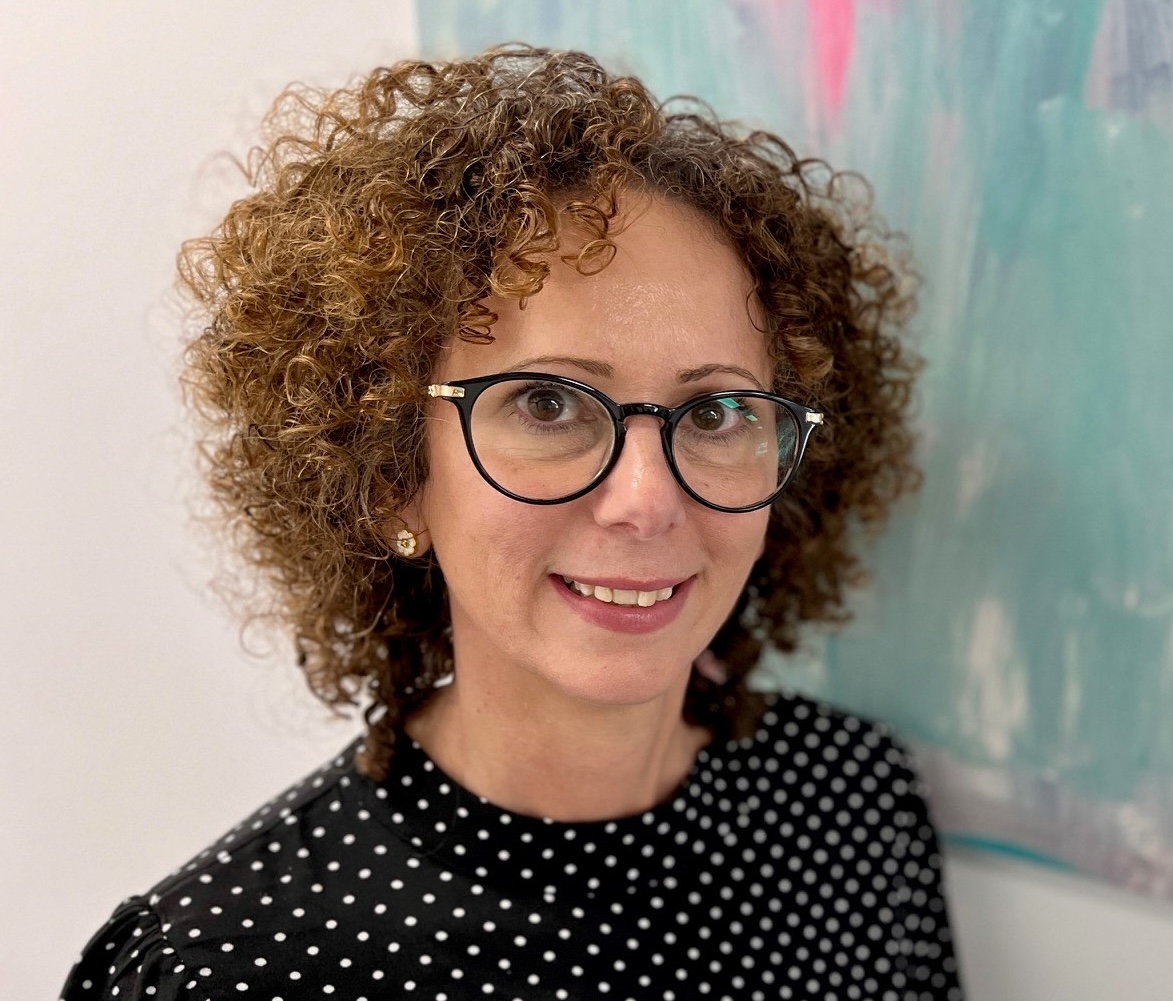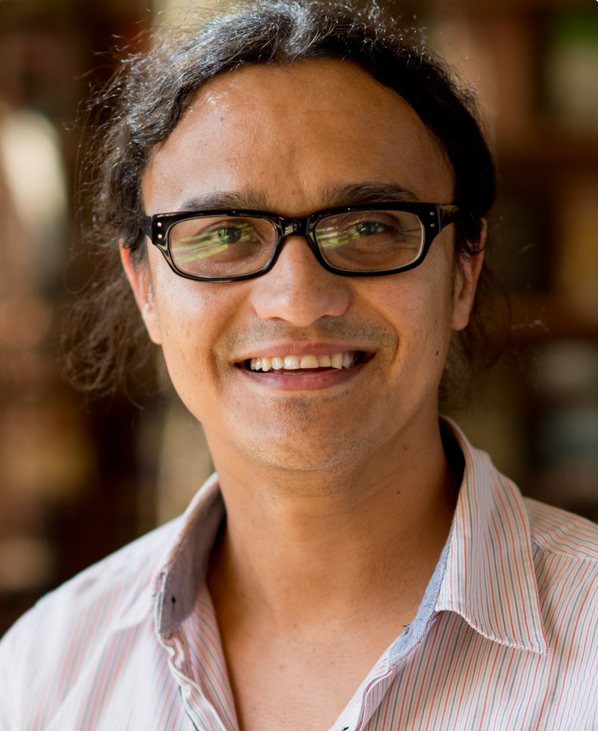‘This is for me!’ Ramya’s journey as an ethics teacher
Ramya is a volunteer ethics teacher in western Sydney. This is the story of her journey.
I still remember the day I saw a Primary Ethics leaflet in my child’s school bag. As I took it in my hands and read it all through, I felt straightaway, ‘this is for me!’
I like helping people and was already volunteering at our school P&C. When I heard about ethics and read about the topics, I was curious. My favourite activity is spending time listening to my children, so this opportunity to teach ethics to children looked perfect to me.
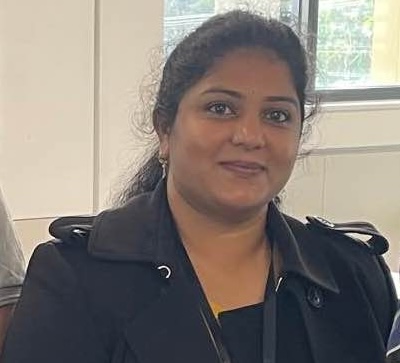
I immediately called the number and spoke to the Primary Ethics coordinator, who then gave me all the information about applying and training. It took me a long time, however, to take the next step and start my journey with ethics – but I did it in the end.
To begin with, I did my training, which at that time was available only on Zoom due to Covid. At first I was very anxious, as I don’t have any experience in teaching and, in the interview, I’d understood that I need to manage the classroom too. The training was a bit challenging at first but I suppose anything can be challenging at the beginning.
My main issue was my accent, as I was new to Australia. I was nervous about my accent and also not sure whether I would understand the students from different backgrounds.
Yet the trainers were so good and made me feel comfortable and confident even though I’d never had any experience of teaching. I had many doubts, but once I finished the training I was confident and clearly understood my ethics teacher role. And once I started my first class, I felt relieved with no doubts at all and began to enjoy each ethics day as my day. I completely fell in love with ethics!
I now volunteer at my children’s school every Wednesday morning. As an ethics teacher, I basically follow the script, which makes it easy and gives us clarity on what we have to do and where we are going in the lesson. Usually a class takes half an hour. That’s all! Thirty minutes to actually volunteer. I prepare ahead of my class by spending an hour reading, to understand the topic and the lesson.
Following the scripts and being neutral is very important. In the classroom I start the topic and read a scenario, using modulation of tone to make it interesting. Then ask the substantive questions and encourage the children to participate.
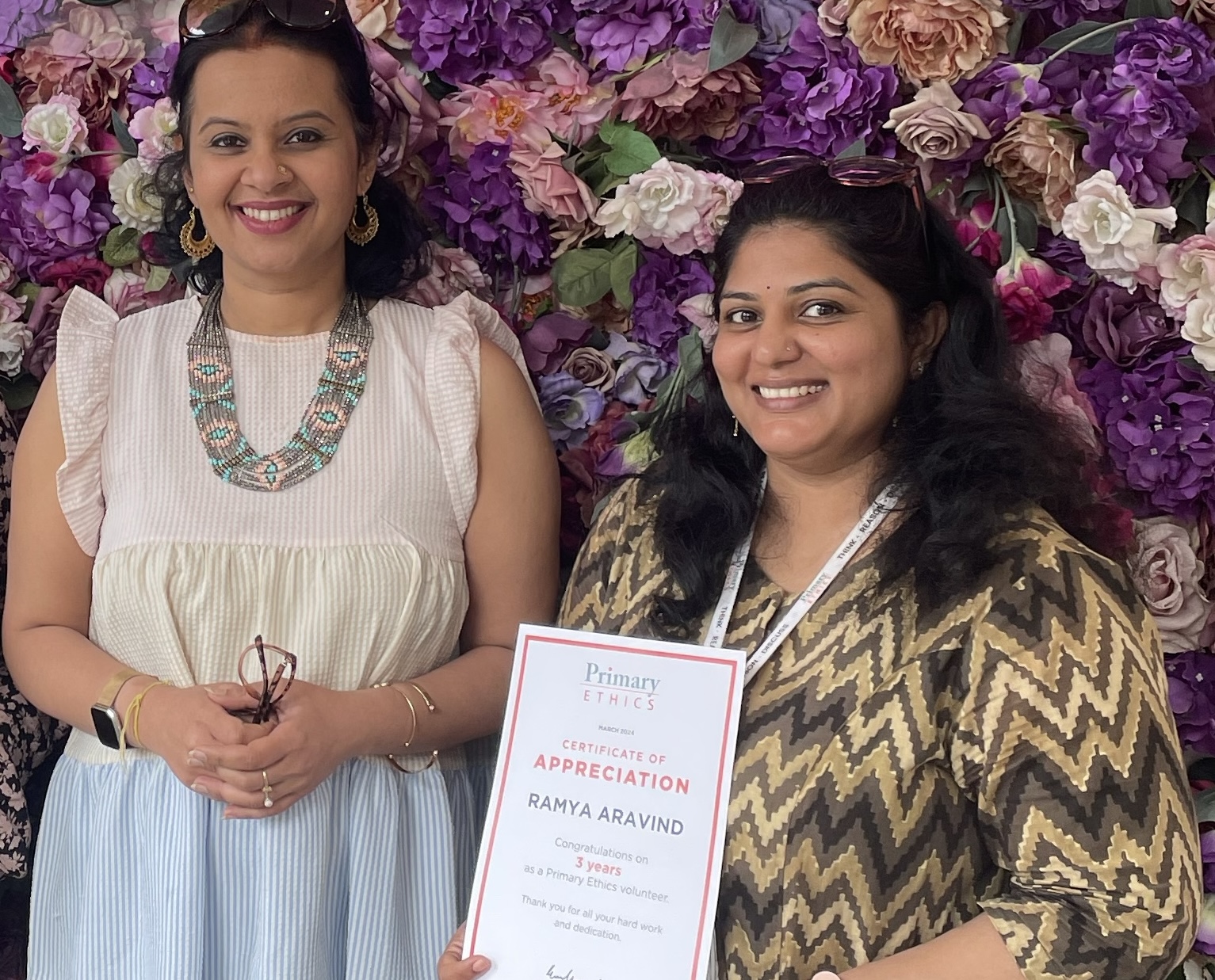
I’m just a facilitator in the class, listening and engaging with them to open up and share their ideas, plus reminding them about the rules. Managing the class was a bit challenging at first but once you know the class and the students, you get to know how to manage them. Or we can ask for the school teacher’s help if required (often there’s a teacher in the classroom during my ethics lesson, quietly doing their own work).
I teach my own kids, which for me is a good experience. I discussed it with my kids before my first class and gave clear instructions to them how to behave. So far, my kids like me to see me as a teacher in their school. Watching them participate in the discussions has been an added perk.
From being an ethics volunteer, I’ve built confidence in myself that I can do something valuable while being a stay-at-home mum. Teaching ethics helped me get over some of the fears I had and I started to see the world from all aspects, not just with 'Mum-eyes'.
Ramya
The best thing about volunteering as an ethics teacher is the opportunity to be in the class with kids – and also growing to understand the topics. To listen and encourage them to participate. I enjoy seeing the way young children think and make decisions. When I saw them changing their opinions and giving reasons for that, that was my moment!
I also want to say I was nominated as a volunteer of the year 2023 NSW from Primary Ethics which was unexpected and felt good. And I enjoy the great support I get from all the team of Primary Ethics.
At the beginning I started volunteering for my kids as I was keen on sending them to ethics. Now after my almost four years of experience, I can surely say that it has opened up many benefits in my own life such as confidence, peace, understanding different perspectives and giving clarity to my thinking.
Choosing to volunteer for ethics has changed my life for the best, cleared all the doubts I had before about myself and given me clarity about what I can do. At the end of the day, the very best thing is to hear the children say, “she is my ethics teacher”.
